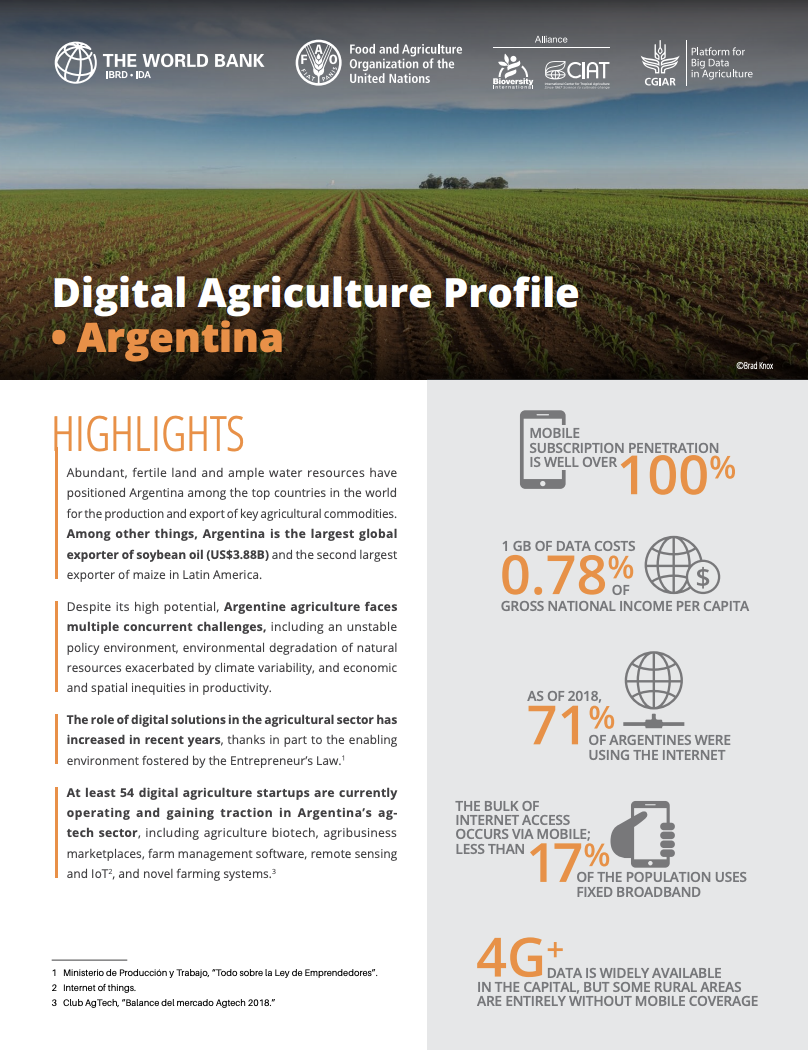Location
Bioversity International is a global research-for-development organization. We have a vision – that agricultural biodiversity nourishes people and sustains the planet.
We deliver scientific evidence, management practices and policy options to use and safeguard agricultural and tree biodiversity to attain sustainable global food and nutrition security.
We work with partners in low-income countries in different regions where agricultural and tree biodiversity can contribute to improved nutrition, resilience, productivity and climate change adaptation.
Members:
Resources
Displaying 1 - 5 of 184Digital Agriculture Profile Argentina
Digital technologies are slowly spreading in agriculture sectors globally. But their adoption is hampered by the digital divide which requires significant public investments, improved policy and incentive frameworks to be bridged. Only after that, digital transformation will take place at scale. DAP is meant to assess the country's readiness for this digital transformation by identifying main bottlenecks, opportunities and risks for digital transformation. DAP will thus guide public investment and policy work to accelerate the scaling up of digital transformation.
Successful community stewardship of tropical forests: Evidence from community forest concessions in Petén, Guatemala
Building resilience through “Open Source Seed Systems” for climate change adaptation in Kenya, Uganda, and Tanzania: What are the options for policy?
This Policy Brief is a result of a series of national and regional stakeholder consultations and a policy write shop on the establishment and maintenance of Open Source Seed Systems that ensure inclusivity of farmers and enhance freedom to develop, access, and use plant genetic materials. The brief is also based on results from research on seed networks and policy and legislative frameworks in Kenya, Uganda, and Tanzania. The stakeholders recommend the following policy options for successful establishment and implementation of Open Source Seed Systems.
Can the production of wild forest foods be sustained in timber concessions? Logging and the availability of edible caterpillars hosted by sapelli (Entandrophragma cylindricum) and tali (Erythrophleum suaveolens) trees in the Democratic Republic of Congo
Sapelli (Entandrophragma cylindricum) and tali (Erythrophleum suaveolens) are among the most important timber
species harvested from Congo Basin forests. They also host edible caterpillars, Imbrasia oyemensis and Cirina
forda, respectively, which are important to the nutrition and income of rural and urban populations. This study
evaluated the density of these tree species within a 10 km radius around each of 4 villages and in the 2012
annual cutting areas of two timber concessions in the region of Kisangani (DRC). Sapelli and tali trees



